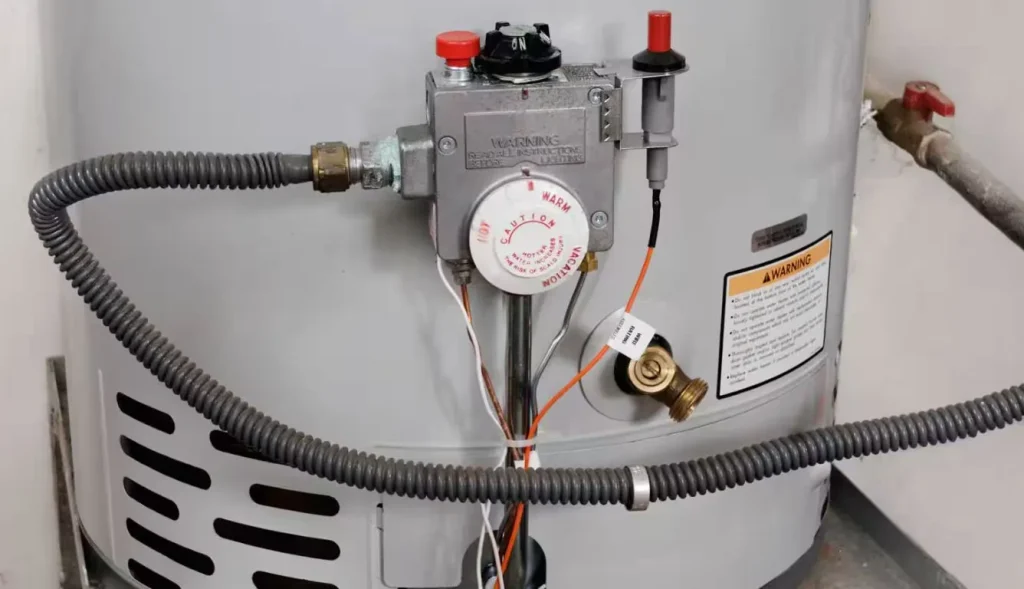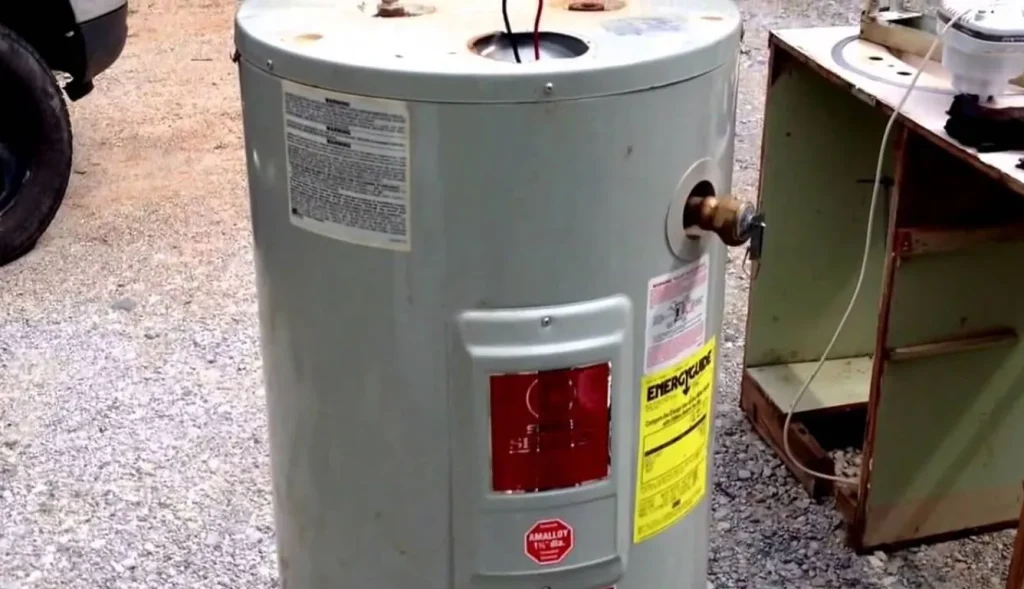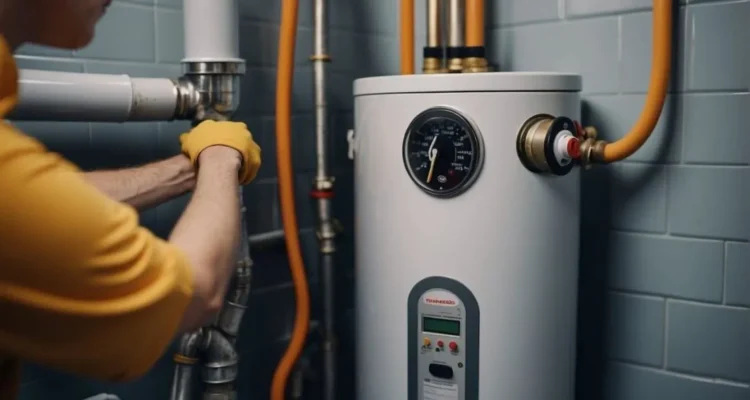Introduction
So, you’ve got an old water heater that’s seen better days, and you’re not sure what to do with it. Disposing of a water heater might seem like a straightforward task, but there’s more to it than just tossing it out with the trash. Proper disposal is crucial not just for the environment but also to comply with local laws and regulations.
In this guide, we’ll walk you through everything you need to know about how to dispose of a water heater responsibly. From identifying when it’s time for a replacement to exploring different disposal options, we’ve got you covered.

Why Proper Disposal is Important
Disposing of a water heater isn’t as simple as putting it out by the curb. These appliances contain materials like metals and insulation, which can harm the environment if not handled correctly. Improper disposal can lead to environmental hazards such as soil contamination and water pollution.
Moreover, many areas have strict regulations regarding the disposal of large appliances. Failing to comply with these rules could result in hefty fines or legal trouble. That’s why it’s essential to understand and follow the proper disposal procedures.
Signs It’s Time to Replace Your Water Heater
Before you can think about disposal, you need to know whether your water heater actually needs to be replaced. The average lifespan of a water heater is about 8-12 years, depending on the model and maintenance. However, several signs indicate that it might be time for an upgrade.
Leaks and Rust
If you notice water pooling around your water heater, it’s a clear sign that something’s wrong. Leaks often indicate internal damage, which could mean the unit is nearing the end of its life. Rust is another red flag. When rust appears on the tank or water, it’s a sign that the water heater is deteriorating from the inside out.
Inconsistent Heating
Have you noticed that your water isn’t as hot as it used to be, or that the temperature fluctuates wildly? This inconsistency can be frustrating and is often a sign that your water heater’s heating element is failing. If repairs haven’t improved the situation, it might be time to consider a replacement.
Preparation Before Disposal
Once you’ve determined that your water heater needs to go, there are a few steps you should take to prepare it for disposal. Safety is paramount during this process, so be sure to follow these guidelines carefully.
Turning Off Power and Water Supply
Before doing anything else, make sure to turn off the power to your water heater. For electric units, this means switching off the circuit breaker. If you have a gas water heater, turn off the gas supply valve. Next, shut off the water supply to the heater by closing the valve on the cold water pipe.
Draining the Water Heater
Draining the water heater is an essential step before removal. You’ll need a garden hose and a nearby drain. Attach the hose to the drain valve at the bottom of the tank and run the other end to a floor drain or outside. Open the drain valve and allow the water to flow out completely. This process may take some time, depending on the size of your tank.
Disposal Options
Now that your water heater is prepped and ready, it’s time to explore your disposal options. There are several ways to dispose of an old water heater, and the best method for you may depend on your location, the condition of the heater, and local regulations.
Curbside Pickup
Many municipalities offer curbside pickup for large appliances, including water heaters. However, this service often requires scheduling in advance and may come with a fee. Be sure to check with your local waste management service to understand the guidelines, as some areas may have specific days for bulk item collection.
Recycling Centers
Recycling is one of the most environmentally friendly options for disposing of a water heater. Many recycling centers accept water heaters and will break them down to salvage useful materials like steel, copper, and brass. You can usually find a nearby recycling center by searching online or contacting your local waste management department.
Donating a Working Water Heater
If your water heater is still in working condition, consider donating it to a charitable organization or a family in need. Many non-profits accept used appliances and will even pick them up for free. Donating is a great way to give your old heater a second life while helping others.
Hiring a Professional
If the idea of disposing of your water heater yourself seems daunting, you can always hire a professional. Many HVAC companies and plumbers offer removal services, which typically include the safe disposal of your old unit. This option is convenient but may come at a higher cost.
When to Consider Hiring a Professional
Consider hiring a professional if your water heater is located in a difficult-to-access area, like a basement or attic, or if you’re unsure how to disconnect and move it safely. Professionals have the tools and expertise to handle the job quickly and efficiently.
How to Choose a Reputable Disposal Service
When selecting a disposal service, look for companies with good reviews and proper certifications. It’s also a good idea to get a few quotes before making a decision to ensure you’re getting a fair price.
Environmental Considerations
Proper disposal of a water heater isn’t just about following the rules—it’s also about protecting the environment. By choosing to recycle or donate your old water heater, you can help reduce the amount of waste that ends up in landfills and conserve valuable resources.
Tips for Minimizing Waste
To minimize waste, consider upgrading to a more energy-efficient model when replacing your water heater. Look for units with the Energy Star label, which signifies they meet strict energy efficiency guidelines. Additionally, regular maintenance can extend the life of your water heater, reducing the frequency of replacements.
FAQs
1. What is the average lifespan of a water heater?
The average lifespan of a water heater is typically 8-12 years, though this can vary based on the model and how well it has been maintained.
2. Can I dispose of my water heater in a landfill?
It’s not recommended to dispose of a water heater in a landfill due to the environmental impact and the fact that many areas have regulations against it. Recycling or curbside pickup is often a better option.
3. How much does it cost to dispose of a water heater?
The cost of disposing of a water heater can vary depending on your location and the disposal method. Curbside pickup may be free or have a small fee, while hiring a professional could cost $50-$150 or more.
4. Is it better to repair or replace an old water heater?
If your water heater is more than 8-10 years old and experiencing significant issues, replacement is often more cost-effective than repair. Newer models are also more energy-efficient.
5. What are the environmental benefits of recycling a water heater?
Recycling a water heater helps recover valuable materials like steel and copper, reduces the amount of waste in landfills, and minimizes the environmental impact associated with mining and manufacturing new materials.

Conclusion
Disposing of a water heater may seem like a daunting task, but it’s an important one. By following the proper steps and considering all your disposal options, you can ensure that your old water heater is handled responsibly. Whether you choose to recycle, donate, or hire a professional, taking the time to dispose of your water heater correctly benefits both you and the environment.


Congratulation!